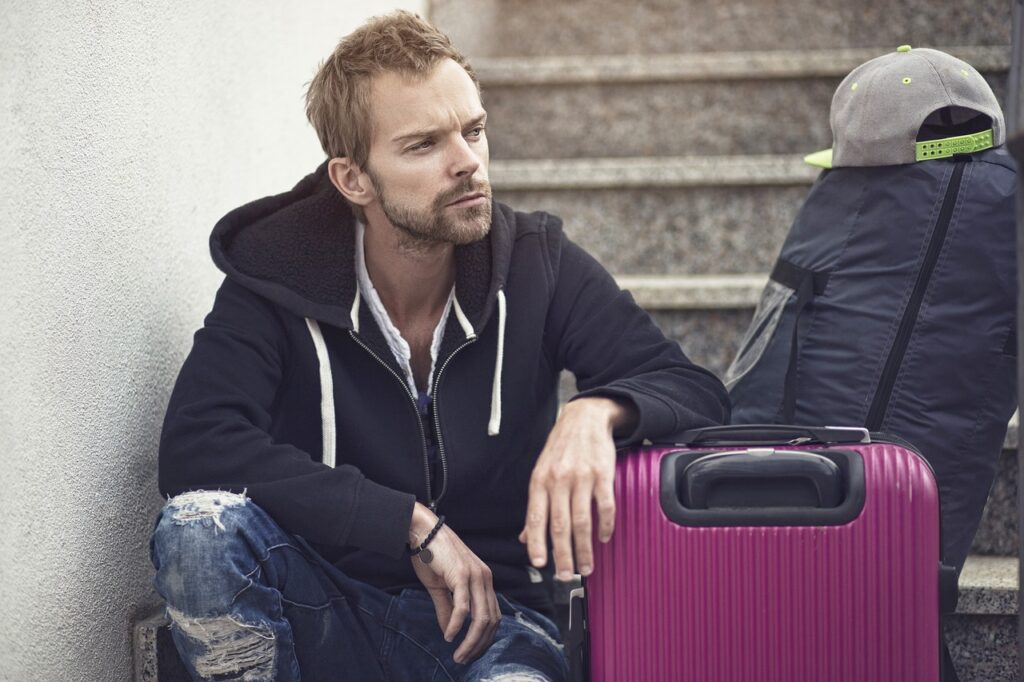Moving into a new house can be both thrilling and stressful. There are so many things to consider and plan for, making it overwhelming at times. One of the most common questions people have when moving into a new house is: what should I move first?
The answer to this question may vary depending on individual circumstances, but there are some general guidelines that can help make the moving process smoother and more efficient. In this article, we will provide you with some tips on what to prioritize when moving into a new house.
Begin with Essentials
The first and most important step when moving into a new house is to prioritize the essentials. These are the items that you will need on a daily basis and cannot function without. Some examples of essential items include:
Bedding and linens:
Moving can be a tiring and exhausting process, so you will want to have a comfortable bed to sleep in on your first night. Make sure to pack clean sheets, pillows, and blankets so that you can get a good night’s rest.
Toiletries:
Toilet paper, hand soap, toothbrushes, and other personal hygiene items are essential for daily use. Make sure to pack these items in a clearly labeled box or bag so that you can easily find them when needed.
Kitchen essentials:
Moving into a new house means you will need to cook and eat meals. Make sure to pack some basic kitchen supplies like plates, utensils, pots, and pans, as well as some non-perishable food items for your first few days.
Important documents:
It is crucial to keep all your important documents such as passports, birth certificates, and insurance papers with you at all times during the move. Pack them in a secure box or folder and make sure to have them easily accessible.
Prioritize Large and Heavy Items
After you have packed the essentials, it is time to move on to larger and heavier items. These may include furniture, appliances, and electronics. It is best to prioritize these items as they will require more effort and manpower to move. Here are some tips for packing and moving large items:
Disassemble furniture:
If possible, disassemble your furniture before moving it. This will make the items lighter and easier to move, as well as save space in your moving truck.
Use proper equipment:
Invest in some furniture sliders or a dolly to help move heavy furniture without straining yourself. These tools can also prevent damage to your floors and walls.
Pack appliances safely:
Make sure to properly secure and pack appliances like refrigerators, washing machines, and dryers to prevent any damage during transit.
Label fragile items:
When packing delicate or breakable items, be sure to label all the boxes as “fragile”. This will ensure that they are handled with care during the move.
Consider Fragile Items
After you have packed the essentials and larger items, it is time to focus on fragile or valuable items. These may include family heirlooms, antiques, or expensive electronics. Here are some tips for packing and moving these items:
Use proper packaging materials:
Invest in sturdy boxes, bubble wrap, and packing peanuts to protect fragile items during the move. Wrap each item individually and make sure they are snugly packed in the box.
Transport valuables yourself:
If possible, it is best to transport valuable or sentimental items with you personally rather than relying on a moving company. This way, you can ensure their safety and avoid any potential damage.
Consider insurance:
Consider purchasing additional insurance for your valuable items during the move. This can provide peace of mind and financial protection in case of any accidents or damage.
Don’t Forget About Your Pets
Moving can be a stressful experience for pets, so it is important to prioritize their well-being as well. Here are some tips for moving with pets:
Make them comfortable:
Just like you will want your own bed and familiar items during the move, your pet will also benefit from having their own bedding and toys.
Transfer medical records:
If you are moving to a new area, make sure to transfer your pet’s medical records to a new veterinarian. This will ensure that they continue to receive proper care.
Plan for transportation:
If traveling long distances, plan ahead for how you will transport your pet. Make sure they have enough self storage, food, water, and bathroom breaks during the trip.
Tips for an Organized Move
In addition to knowing what to prioritize when moving, there are also some general tips that can help make the process more organized and efficient. These include:
Create a moving checklist:
A moving checklist is a detailed list of tasks that need to be completed before, during, and after the move. It can include items such as packing deadlines, change of address notifications, and utility companies. Having a checklist can help you stay organized and on track with your move, reducing stress and ensuring that no important steps are missed.
Prepare for the unexpected:
No matter how well you plan, there may still be unexpected challenges that arise during the move. It is important to prepare for these situations by having a backup plan or extra time and resources available.
Declutter before packing:
Moving can be a great opportunity to declutter and get rid of any items you no longer need or use. This can help reduce the amount of stuff you need to pack and move, as well as make your new home feel more organized from the start.
Label boxes clearly:
Clearly label each box with its contents and which room it belongs in. This will make unpacking much easier and help you find specific items quickly.
Take breaks:
Moving can be physically and mentally draining, so make sure to take breaks when needed. This will help you stay energized and focused throughout the process.
Benefits Of Being Organized During A Move
While moving can be a stressful and chaotic process, being organized can have many benefits. These include:
Save time:
Having an organized home checklist and plan can also save time during the moving process. By knowing exactly what needs to be done, you can efficiently complete tasks without wasting time on unnecessary steps.
Reduced stress:
Moving can be a highly demanding and stressful experience, but being organized can help reduce that stress. When you have a plan in place and everything is packed and labeled properly, it can alleviate the feeling of chaos and make the move feel more manageable.
Save money:
Being organized during a move can also save you money. By decluttering before packing, you may end up needing a smaller moving truck or fewer supplies. Additionally, having a plan in place can help prevent any costly mistakes or last-minute purchases.
Easier unpacking:
Taking the time to pack and label boxes properly can make unpacking at your new home much easier. You will know exactly where everything is and which room it belongs in, making the process more efficient and less stressful.
Start fresh:
Moving to a new home is often seen as a fresh start. By being organized during the move, you can set yourself up for success and a less cluttered, more organized life in your new space. Overall, being organized during a move can have numerous benefits and make the process smoother and less overwhelming.
Avoid damage:
Properly packing and labeling items can also help prevent any damage during the move. By following these tips, you can ensure that your belongings arrive safely at your new home without any costly or sentimental items being damaged.
Common mistake to avoid when moving
While moving can be a daunting task, there are some common mistakes that people make which can add unnecessary stress and complications to the process. Here are some things to avoid when moving:
Waiting until the last minute:
Procrastination is not your friend when it comes to moving. Waiting until the last minute will only lead to added stress and possibly missing important tasks or steps. Start planning and packing as soon as possible to avoid any last-minute disasters.
Forgetting to change your address:
It’s easy to overlook the simple task of changing your new address, but it is crucial for ensuring that you receive important mail and packages at your new home. Make sure to update your address with the post office, banks, utilities, and other important services.
Not being realistic about time and resources:
Moving takes time and resources, so it is important to be realistic when making your moving plan. Trying to do too much in too little time or not having enough help can lead to added stress and potentially costly mistakes.
Neglecting to research the new area:
If you are moving to a new area, it is important to do some research beforehand. This can include things like local schools, transportation options, and amenities in the area. Having this information can help ease the transition into your new home.
Not packing essentials separately:
When packing, make sure to keep essential items separate from everything else. This could include things like toiletries, important documents, or a change of clothes. This will prevent you from having to dig through boxes when you need something urgently.
FAQs
What documents should be prioritized during the move-in process?
Begin with essential documents such as identification, insurance papers, and any legal documents related to the new property. Keep these items secure and easily accessible.
When should I schedule utility transfers and notify credit card companies about my change of address?
It’s crucial to initiate utility transfers well in advance of the move-in date. Notify credit card companies and update your address to ensure seamless communication and billing at your new residence.
How can I efficiently manage the logistics of moving boxes and household items?
Create a comprehensive moving house checklist to prioritize items for packing and moving. Start with non-essential items and seasonal belongings, gradually progressing to everyday essentials as the move-in date approaches.
Is it advisable to switch energy providers when moving into a new home?
Yes, consider researching and switching energy providers if it aligns with your budget and preferences. Notify the current provider in advance and set up the new service to ensure a smooth transition upon arrival.
What steps can I take to make my new house feel like home on move-in day?
Begin by unpacking and arranging items that contribute to your immediate comfort, such as bedding, toiletries, and kitchen essentials. Personal touches like photos and decorations can also help create a familiar and welcoming atmosphere in your new living space.
Conclusion
Moving can be a stressful and overwhelming experience, but with proper organization and planning, it can also be a smooth and efficient process. By creating a checklist, preparing for the unexpected, decluttering before packing, labeling boxes clearly, taking breaks when needed, and being aware of common mistakes to avoid, you can make your move less chaotic and more organized.
The benefits of being organized during a move are numerous, including saving time and money, reducing stress, and making the unpacking process easier. So next time you have to move, remember to stay organized and make your move a more seamless and enjoyable experience.






